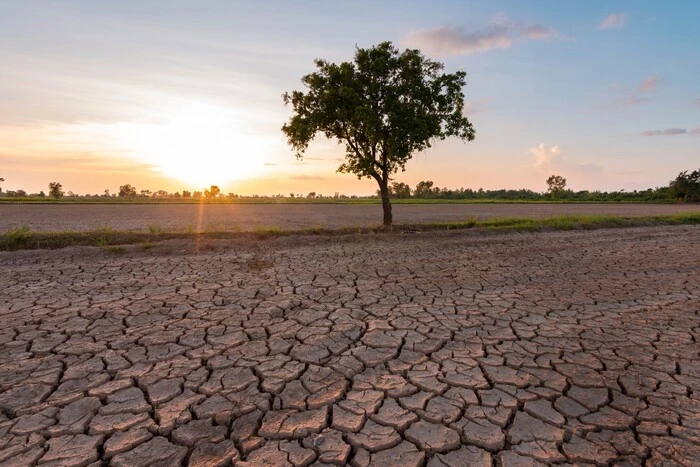UN Climatologists Claim Last Year Was the Driest in 30 Years.


2023 was the driest year in the last thirty years for rivers worldwide, with record-high temperatures causing water streams to dry up and prolonged droughts in some regions. This information is reported by The Washington Post, citing a report from the UN Meteorological Agency (WMO).
The report states that glaciers supplying water to rivers in many countries have suffered the greatest mass loss in the last five decades. The Meteorological Agency warns that ice melting could significantly threaten long-term water stability for millions of people worldwide.
The WMO Secretary-General, Celeste Saulo, noted that rising temperatures have partly contributed to making the hydrological cycle "more unstable and unpredictable," which could lead to "excessive or insufficient water" due to droughts and floods.
According to the Meteorological Agency, about 3.6 billion people face limited access to water for at least one month a year, and this number is expected to rise to 5 billion by 2050. At the same Time, 70% of all water people obtain from hydrological systems is used in agriculture.
The report also notes that the southern US, Central America, and South American countries, notably Argentina, Brazil, Peru, and Uruguay, faced massive droughts and "the lowest recorded water levels in the Amazon and Lake Titicaca" at the Peru-Bolivia border. The water level in the Mississippi River basin also reached record lows.
Last year, half the world faced water scarcity, negatively affecting river navigation in Brazil and leading to a food crisis in Zimbabwe and other regions of Southern Africa.
The Hottest Year and Hottest Summer
2023 turned out to be the hottest year in recorded history, and the summer was the hottest summer, serving as a warning signal for potentially setting a new annual record in 2024.
"In the last 33 years of observations, we have never had such a large area globally in such dry conditions," said the Director of the WMO Department of Hydrology, Water Resources, and Cryosphere, Stefan Uhlenbrook.
It should be noted that American scientists previously claimed that the melting of polar ice, driven by global warming, is altering the Earth's rotation speed and increasing the length of the day.
Incidentally, the climate crisis looming over Earth has led to the world experiencing incredible temperatures and more extreme natural disasters.
Earlier, Bloomberg reported that global warming is triggering powerful rains, hurricanes, and consequently, altering the climate.
Read also
- In Ukraine, there is little cloud cover, no precipitation: weather forecast for July 6
- American fighter jet F-16 intercepted a plane over Trump golf club
- Iran struck five Israeli military targets during a 12-day war – The Telegraph
- NATO Secretary General Predicts New War
- The Occupant From Captivity Called His Mother, But She Made Up a Strange Reason Not to Talk to Him
- A Ukrainian Went to Fight for the Russians, but They Sold Him to the Ukrainian Armed Forces










